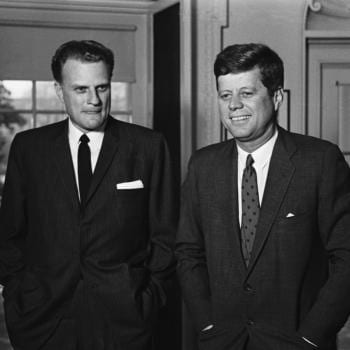I recently received this email message from Nikole Hannah-Jones. I don’t believe she sent it only to me (“Reader” is a clue). I’m pretty sure it went out to all subscribers:
Dear Reader,
I am a journalist at The New York Times Magazine and the creator of The 1619 Project. I cover racial inequality and injustice for the magazine, and in many ways, this project feels like the journalistic endeavor I’ve been working toward my entire life.
I understood that 1619 — the year the first enslaved Africans were sold into Virginia in British North America — was a pivotal year in American history, but one that very few Americans had heard about. So, as the 400th anniversary of American slavery approached, I pitched a project that would dedicate an entire issue of The New York Times Magazine to examining not just that historic moment, but the ongoing legacy of slavery across modern American life.
That is how The 1619 Project, which would grow to include not just an issue of the magazine, but a special section of the newspaper, a podcast and a series of live events, was born. For eight months, the sweeping effort consumed many talented editors at The Times, as we all worked together to produce something worthy of the anniversary.
The day the project launched, it sold out all across the nation, and we have sold out of several additional releases since. I’ll never forget how it felt to see people posting videos and photos, proudly announcing that they had snagged a copy of The 1619 Project for themselves. What I have heard again and again from readers like yourselves who engaged with the project, is that they simply did not know this history before.
That is the power of The New York Times. We are unparalleled in resources, talent and the commitment to do unprecedented journalism that transforms national conversations and the way we think about our world. I do not know of another news organization that could have given this type of journalism its authority and its reach. And we most certainly could not do this without your readership and support.
Thank you for supporting journalism that matters.
Best,
Nikole Hannah-Jones
This is amazingly like the email message I received from Jeffrey Goldberg, the editor of the Atlantic, last summer. The self-praise rivals POTUSes when they boast about their accomplishments in the White House:
We are unparalleled in resources, talent and the commitment to do unprecedented journalism that transforms national conversations and the way we think about our world.
What is curious about both the Times’ and the Atlantic’s self-boasting, is that it contradicts the very claims of the 1619 Project. According to Hannah-Jones’ argument, no institution in the United States was immune from the consequences of slavery and racism. Here is how one critic summarizes the lethal effects of 1619:
The arguments advanced by Hannah-Jones are: a) that the establishment of the United States was a counterrevolution, whose primary purpose was the protection of slavery against the danger posed by a British-led emancipation movement; b) that Lincoln was a racist and that the Civil War therefore was unrelated to the fight to abolish slavery; c) that African Americans have fought alone in the face of relentless racism based on the universally popular doctrine of white supremacy; d) racism and slavery are the essential elements of American exceptionalism; and, therefore (and most important of all); e) all of American history is to be understood as the struggle between the white and black races. The driving forces of American history are not objective socioeconomic processes that give rise to class conflict, but, rather, eternal and supra-historical racial hatreds.
Actually, Khalil Gibran Muhammad in his book, The Condemnation of Blackness: Race, Crime, and the Making of Modern Urban America (2010), includes a discussion of a book review of William Hannibal Thomas’s 1901 book, The America Negro. Here is what Muhammad found in the exceptional New York Times:
“No white man has ever so far as we can remember, arraigned the freedman with such scathing denunciation of his faults and vices” as Thomas. “Such a jeremiad, delivered by one belonging to the very race against which it is hurled, carries unmistakable conviction of the writer’s sincerity and knowledge whereof he speaks.” Thomas’s observations lead to a “mental vision” of a “sinister and terrible figure still to be dealt with in our social economy.” . . . There was nothing whites could do to help, “since the most ignorant and degraded examples of freedmen are to be found in the North, where they have enjoyed every advantage around them unrestricted. What better proof of racial incapacity is needed?” (80)
That review suggests the New York Times is not innocent of racism. So how can the New York Times keep its exceptionalism while the United States loses its greatness?
Could it be that moralizing about the failings of the United States is an effective way of enhancing brand identity and loyalty? Could it also be that investigating the effects of racism on the national soul functions as a kind of quid pro quo for polishing reputation and attracting advertisers? I sure hope not because despite the way impeachment turned out, everyone knows that using investigations of rivals for personal gain is almost as bad as racial bigotry.
















